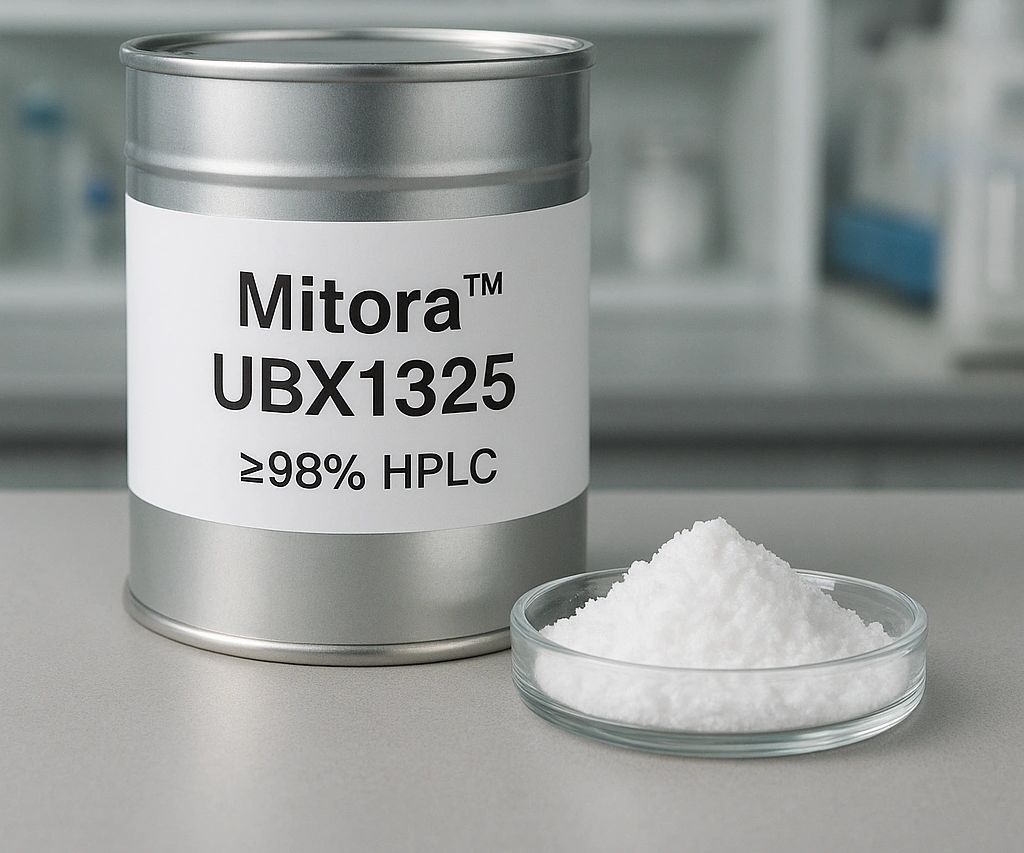Accumulating experimental evidence suggests Fisetin in combination with Dasatinib-Quercetin impacts vital oncogenic pathways to restrain tumor growth and proposes a viable therapeutic direction
Navitoclax (ABT-263) — Targeting BCL-2 for Cancer Treatment
Navitoclax (ABT-263) operates by binding BCL-2 proteins to disable survival mechanisms in tumors, facilitating apoptosis and addressing treatment refractoriness
Preclinical Perspectives on UBX1325 as a Potential Cancer Therapeutic
Early-stage research on UBX1325 demonstrates its capacity to reduce tumor burden in experimental settings and warrants continued mechanistic and combinatorial studies
Fisetin: Prospects for Counteracting Drug Resistance Pathways
Drug resistance remains a major barrier to successful therapy, and mounting evidence suggests Fisetin may modulate multiple resistance pathways to restore drug sensitivity
- Additionally, research demonstrates Fisetin reduces levels or activity of key resistance molecules, thereby weakening cellular defense systems
- Animal and cell-based studies indicate Fisetin improves responsiveness to diverse therapeutic classes and helps overcome resistance
Consequently, Fisetin represents a promising adjunct that may improve treatment responses by targeting resistance mechanisms and enhancing therapeutic outcomes
Combined Impact of Fisetin with Dasatinib-Quercetin on Cancer Cell Viability
Investigations report that the mechanistic complementarity of Fisetin and Dasatinib-Quercetin underlies significant reductions in cancer cell viability
Systematic studies are warranted to uncover the pathways underlying synergy and to translate findings into practice
Combining Natural Polyphenols, BCL-2 Antagonists and UBX1325 as an Anticancer Strategy
Employing a three-pronged combination of Fisetin, a BCL-2 inhibitor and UBX1325 targets diverse oncogenic vulnerabilities to potentially improve outcomes
- Natural compounds like Fisetin display modulatory properties that can enhance apoptosis and reduce tumor burden in various models
- Navitoclax’s mechanism fosters apoptotic susceptibility that can synergize with other antitumor compounds
- Preclinical profiling of UBX1325 reveals multimodal anticancer activity conducive to combinatorial regimens

Integration of pleiotropic natural compounds with targeted inhibitors and investigational molecules provides a strategic framework for enhanced efficacy
Deciphering How Fisetin Exerts Anticancer Effects
Extensive evidence indicates Fisetin modulates kinases, transcriptional programs and apoptotic regulators to induce growth arrest and cell death in tumor cells
Ongoing mechanistic research aims to resolve the specific targets and pathways Fisetin engages to guide therapeutic optimization
Dasatinib-Quercetin Co-Therapy: Experimental Findings and Implications
Combining Dasatinib, a tyrosine kinase inhibitor, with the flavonoid Quercetin produces enhanced antitumor effects in preclinical systems by engaging multiple signaling axes
- Elucidating the molecular underpinnings of Dasatinib-Quercetin synergy is critical to optimizing translational strategies
- Regulatory and clinical teams are exploring trial designs to test the safety and preliminary efficacy of this combinatorial strategy
- This paradigm highlights the value of combining mechanistically diverse agents to surmount single-agent limitations
An In-Depth Preclinical Analysis of Fisetin, Dasatinib-Quercetin and UBX1325
Collectively, preclinical data underscore the capacity of these agents to modulate growth, survival and microenvironmental processes relevant to tumor control and warrant further translational consideration
- Thorough preclinical characterization will determine whether Fisetin co-therapies offer favorable risk-benefit profiles for clinical translation Careful evaluation of dosing, scheduling and toxicity is necessary to advance Fisetin-based combinations toward trials Research is actively evaluating whether pairing Fisetin with established anticancer agents increases therapeutic benefit while maintaining acceptable safety in preclinical systems
- Laboratory evidence supports Fisetin’s role in limiting tumor growth and promoting programmed cell death in diverse contexts
- The combination of a kinase inhibitor with a flavonoid demonstrates amplified efficacy through multipathway modulation in preclinical assays
- Experimental data suggest UBX1325 exerts antitumor effects that could be leveraged in combination with apoptosis-inducing agents
Tackling Resistance to Navitoclax with Multimodal Regimens
Strategic combinations represent a promising avenue to overcome Navitoclax resistance and expand its clinical utility
Safety and Efficacy Studies of Fisetin With Complementary Agents
Systematic preclinical testing is required to validate that Fisetin-containing regimens improve response rates without unacceptable toxicity